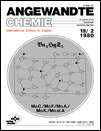Abstract
The economic reproduction of graphic information was first made possible in the western world by Gutenberg's invention of movable type. In the printing methods of that time, mechanical transfer processes played the major role, while chemical processes were of secondary importance. When Alois Senefelder invented planographic printing (lithoprinting) at the end of the 18th century he called the new process “chemical printing”. Since then, chemistry has attained great importance in the production of printing forms: Thus the manufacture of surface (litho-) printing forms with light required temporary storage materials and image reproduction processes based on chemical reactions. Since the advent of electronic processing of information, however, several former temporary storage media have become obsolete; newer, more sensitive image reproduction processes are increasingly making less use of chemical principles than of the electrical properties of materials.
Abstract
The innovative pressure exerted by electronics on the processing of optical information poses the chemist new tasks: apart from the chemical properties of materials, their electrical properties are becoming increasingly important. Chemicals suitable for production of reprographic forms by electrophotography without film include CdS, ZnO, and organic heterocycles such as oxazoles and benzothiazoles.




